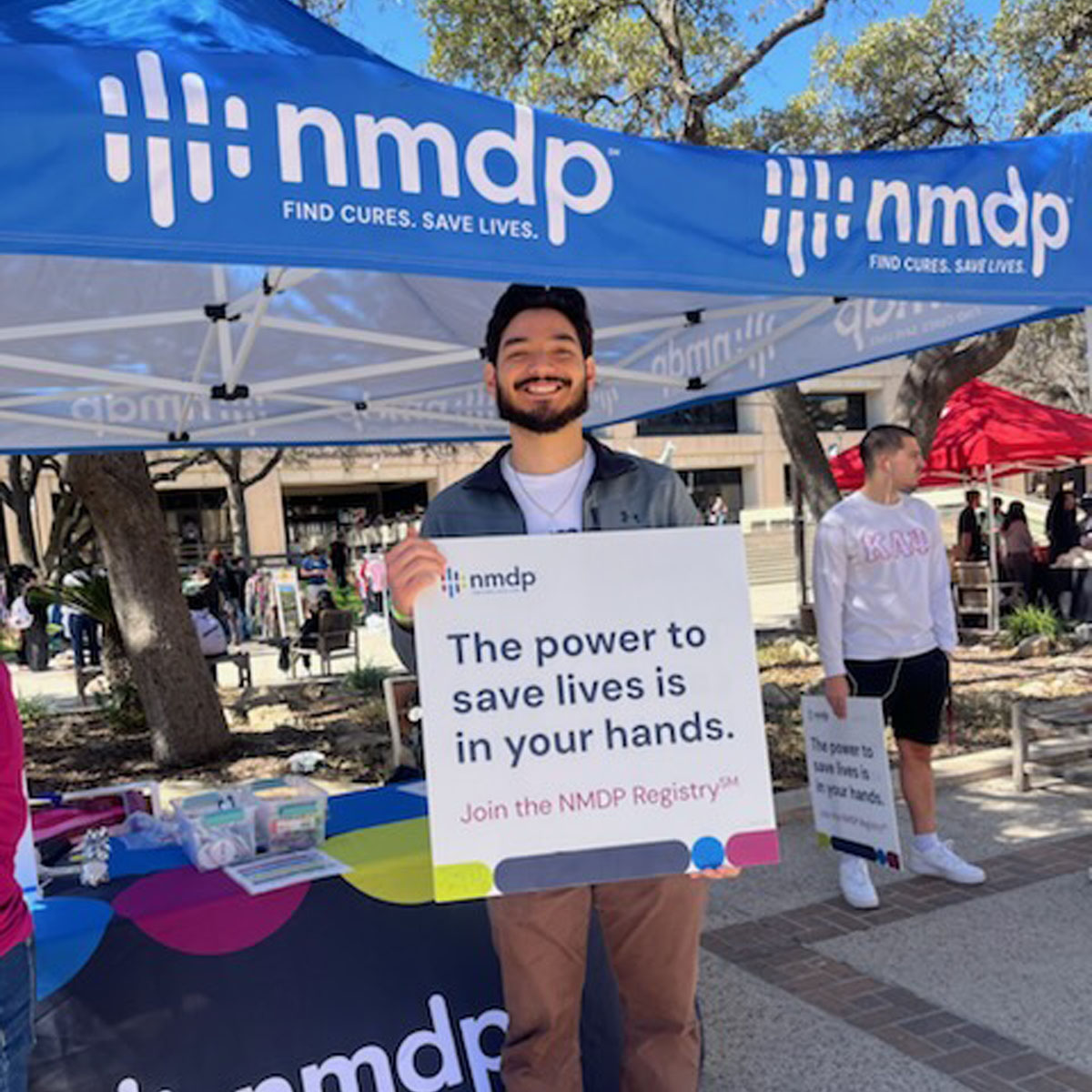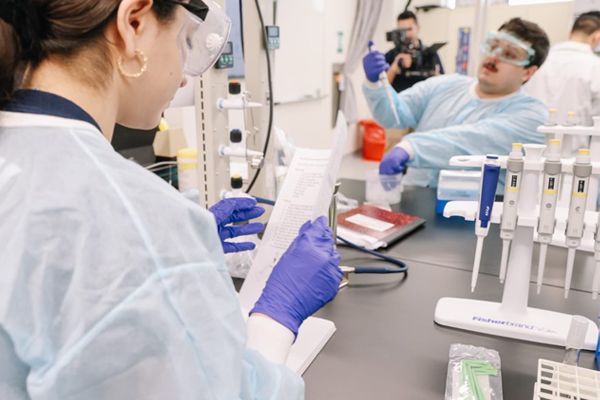Posted on April 11, 2025 by College of Sciences

Andrew Natera, Microbiology and Immunology Major
By Sean M. Wood
Andrew Natera isn't just studying science—he's living it. As a teenager, he received a diagnosis that forever changed his life. Now, he's a senior studying microbiology and immunology who plans on pursuing a PhD and MD with one goal: to improve treatments for diseases like his.
At 17, Andrew woke up "looking like a puffer fish." At the hospital, the emergency room nurse thought the blood pressure cuff was broken. Using another one, she got the same result—237 over 115.
The medical staff in Laredo was flummoxed, so he was airlifted to Corpus Christi. Despite the fear and confusion, Natera remembers one small silver lining, "I had never been on a jet before, and it was pretty cool."
Over a week, doctors performed blood tests to eliminate conditions like lupus. They performed a kidney biopsy to run more tests. Andrew said his doctor tried to be optimistic with each test result. "He would say I'm still hoping it's not something we can't treat. Then he got the final result, and he came in, and he was really shocked. He came in, and he said, "I'm sorry. Your kidneys are really sick."
Andrew, who describes himself as a goofy guy, told the doctor, "If that's my luck, that's OK. I can only control what I can control." He figured that if he's going to be sick, he would rather be sick and happy than sick and sad.
That attitude has helped him adjust to his condition, which he manages with medication, diet, exercise, and the healthy kidney donated by his father. Andrew has also worked with several nephrologists or kidney specialists during summer internships on his path to earning his PhD and MD.
A nephrologist at one of Andrew's internships once explained that he'd never seen anyone like him. "We only read about you in textbooks."
"I told him that now he gets to see me whenever he wants," Andrew said.
Andrew has a rare kidney disease that only affects around three in a million people. A kidney from his father and medication that breaks down proteins that were killing his kidneys have fueled his goal of finding better treatments for Dense Deposit Disease (DDD).
"It's a genetic condition, even though no one in my family has it," Andrew explained.
Complements—proteins in the immune system—don't work correctly in DDD. In Andrew's case, they caused his kidneys to stop working.
"Ultimately, my goal is to find better treatments for complement-mediated diseases," Andrew said. "The complement doesn't just affect kidneys; it affects eyes and blood, and they're very deadly."
Andrew's instructors in Indiana and Houston check on him and send him scholarship applications. He also gets a lot of support, he said, from Gail Taylor, assistant director of the MARC Pre-PhD Honors Research Training Program.
"I have been fortunate to have several mentors along the way, including Dr. Taylor, the assistant director of my program,” Andrew said. "She is always available whenever I need help regarding my research."
Andrew has to be careful what he eats, so he's learned to cook for himself and his grandpa.
"My grandma used to cook for me in Laredo, and it was amazing, but I had to cook living with him," he said. "So, I told him we needed a kitchen upgrade, so we got some new pots and pans, and I went on YouTube and learned to cook."
"Now, when I get home, the first thing he asks me is, 'What's for dinner?'"

Explore the MMI Department!
Uniting an engaged community of researchers, educators, and students while preparing students for professional careers in microbiology and immunology, medical and public health service fields, education, research, and industry.
Recent MMI Spotlights
View More Spotlights



